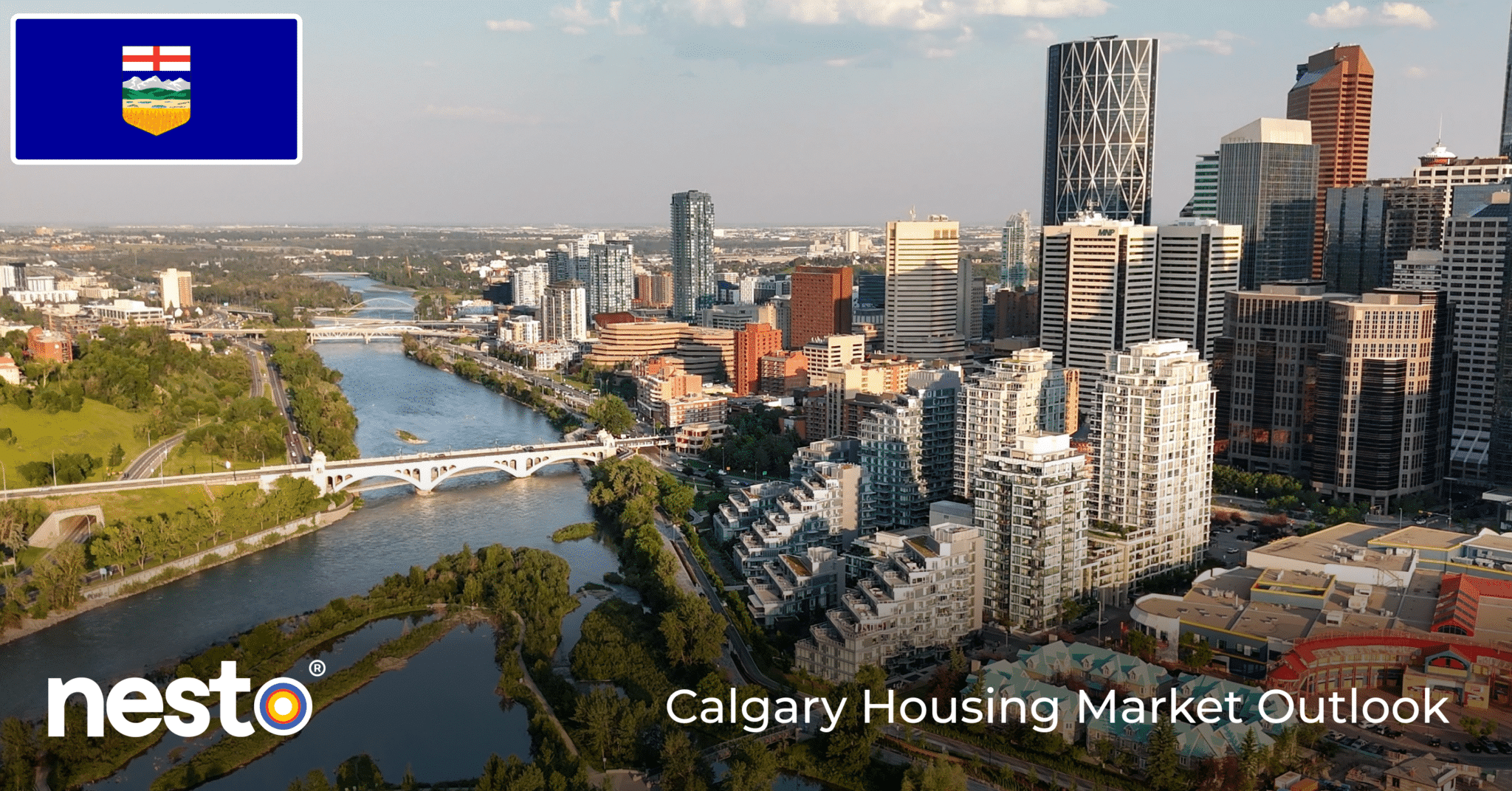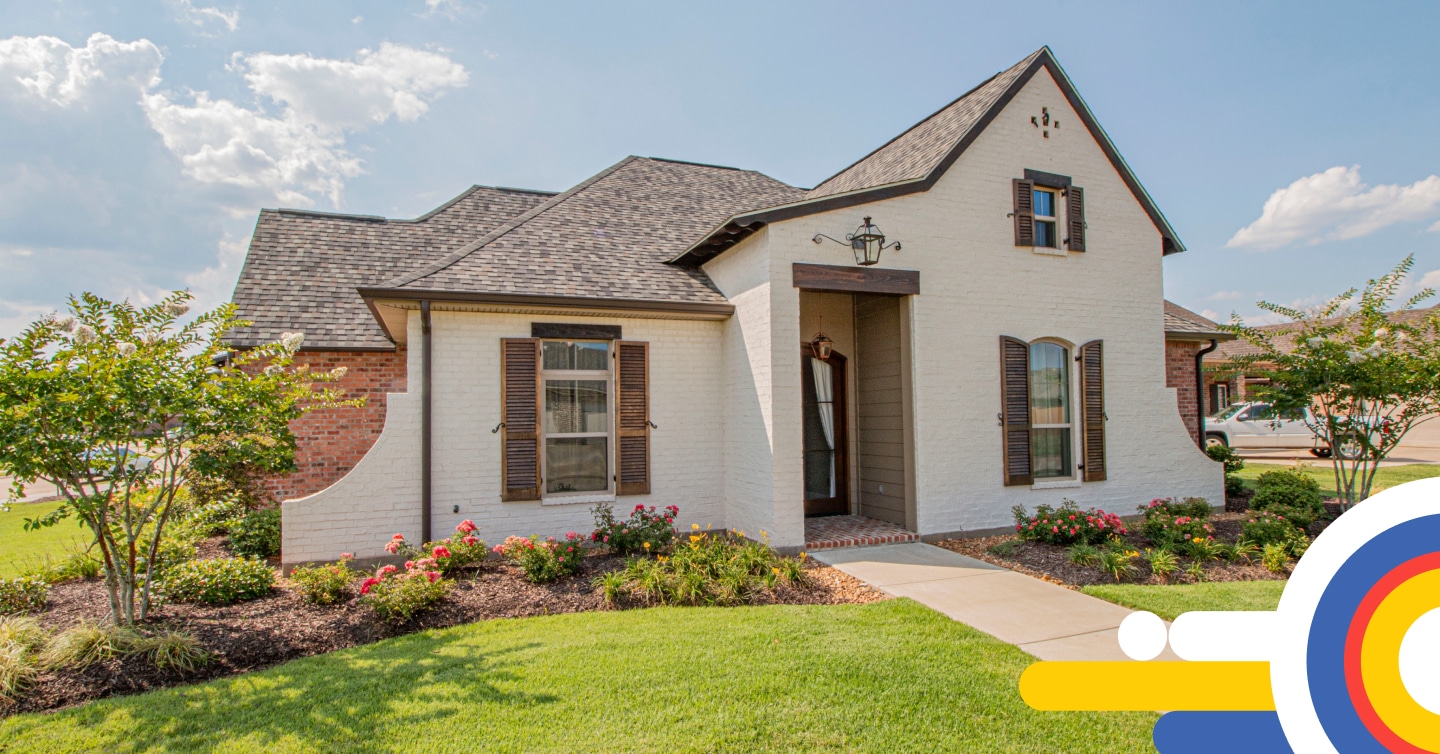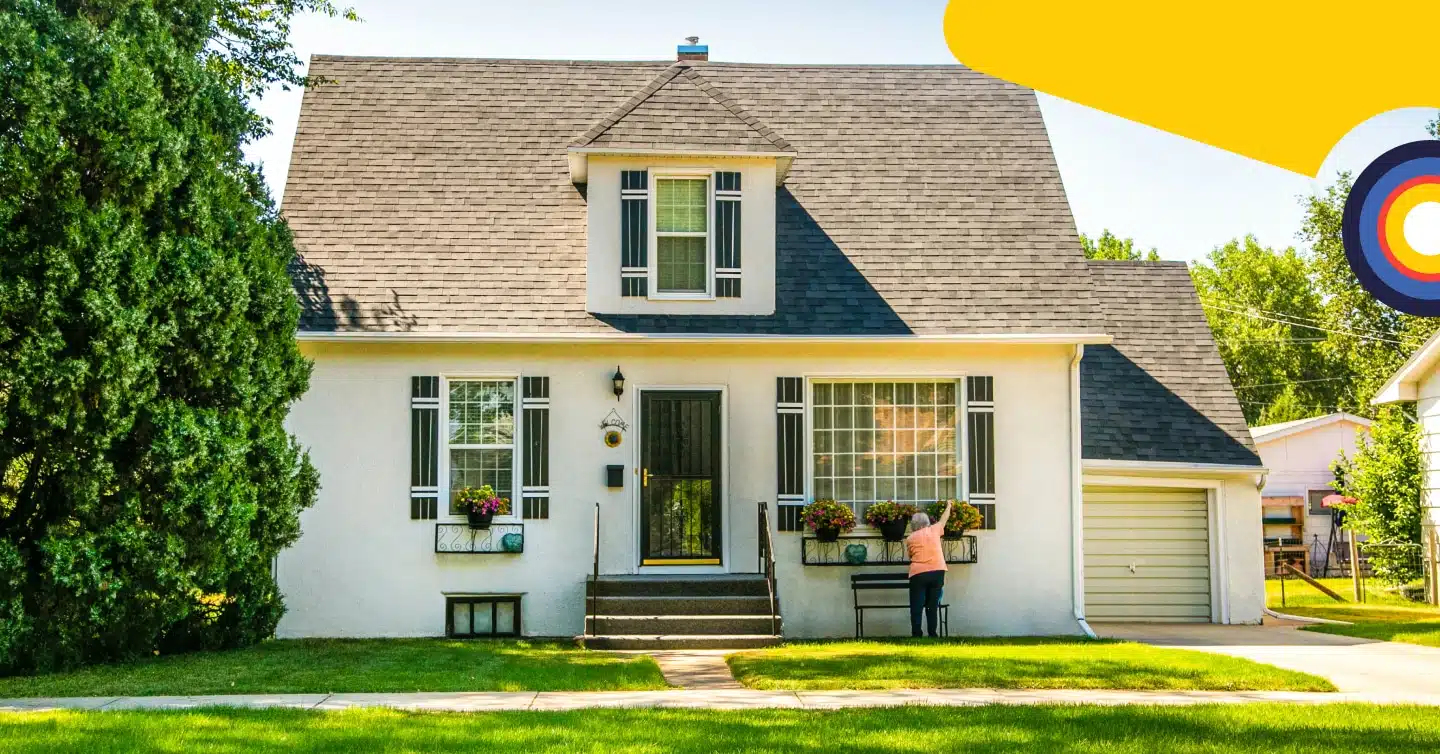Calgary Housing Market Outlook 2025

Table of contents
Calgary Market Report Summary
- The average selling price of a home in Calgary increased by 0.4% year-over-year to $583,000 in May 2025.
- The average selling price of a single-family home in Calgary increased by 2.8% year-over-year to $696,800 in May 2025.
- The average selling price of a townhouse/multiplex in Calgary increased by 0.7% year-over-year to $465,200 in May 2025.
- The average selling price of a condo in Calgary increased by 0.6% year-over-year to $343,100 in May 2025.
- The average rent in Calgary decreased by 9.0% year-over-year to $1,903 for May 2025.
- July 5, 2025: Today’s lowest mortgage rate in Calgary is
for a 5-year fixed.
Composite Home Prices
![]()
The average selling price of a home in Calgary was $583,000 for the month of May 2025, that’s decreased by 0.1% compared to the previous month. On a year-over-year basis, Calgary home prices have increased 0.4% over the last 12 months.
Single-family Home Prices
![]()
The average selling price of a single-family home in Calgary was $696,800 for the month of May 2025, that’s decreased by 0.1% compared to the previous month. On a year-over-year basis, single-family home prices in Calgary have increased by 2.8% over the last 12 months.
Townhouse and Multiplex Prices
![]()
The average selling price of a townhouse in Calgary was $465,200 for the month of May 2025, that’s increased by 0.9% compared to the previous month. On a year-over-year basis, the price of a townhouse in Calgary has increased by 0.7% over the last 12 months.
Condo Prices
![]()
The average selling price of a condo in Calgary was $343,100 for the month of May 2025, that’s increased by 0.3% compared to the previous month. On a year-over-year basis, the price of a condo in Calgary has increased 0.6% over the last 12 months.
We’re curious…
Calgary Housing Market Summary
Data from the Calgary Real Estate Board (CREB) indicates that the average price of resale residential homes sold across Calgary in May 2025 was $583,000, and it increased of 0.4% compared to a year ago.
CREB also reported a sales-to-new-listings ratio (SNLR) of 55%, indicating a balanced market in Calgary for May 2025.
Calgary Housing Supply Surges, Prices Moderate as Market Rebalances
Calgary’s housing market continued its shift toward more balanced conditions in May 2025, driven by rising inventory, steady new construction, and a dip in demand compared to last year’s red-hot pace. According to the Calgary Real Estate Board (CREB), total home sales dropped 16.9% year-over-year to 2,568 units, while new listings jumped 11.6% to 4,842. Inventory nearly doubled, rising 97.5% to 6,740 active listings. These shifts pushed the city-wide months of supply up to 2.62, marking the highest level since mid-2020.
Despite the headline drop in sales, activity remains 11% above long-term May averages, suggesting that Calgary’s fundamentals, population growth, job creation, and affordability continue to be supportive.
Prices Ease in Some Segments as Choice Improves
Calgary’s composite benchmark home price softened slightly to $589,900 in May, down 2.5% year-over-year. While prices for detached and semi-detached homes held up, row houses and apartments saw more notable declines as increased inventory gave buyers more leverage.
● Total residential sales: 2,568 (–16.9% YoY)
● Benchmark price: $589,900 (–2.5% YoY)
● Inventory: 6,740 units (+97.5% YoY)
● New listings: 4,842 (+11.6% YoY)
● Months of inventory: 2.62
● Days on market: 32 (+69% YoY)
Detached & Semi-Detached Home Prices Hold Firm Amid Market Softness
Detached sales fell 7.8% year-over-year to 1,275 units. However, benchmark prices edged up 1% to $769,400, still above last year’s seasonal peak. Semi-detached sales remained stable at 256 units (–1.2% YoY), with the benchmark price rising nearly 3% to $697,300. Tighter inventory in districts like the North West helped keep prices resilient in these segments, even as other areas, such as the North East, saw softening due to increased competition from new builds.
Apartment and Row House Supply Spike Leads to Price Declines
The sharpest shift was seen in the row and apartment sectors. Row home sales declined 15% year-over-year while inventory soared past 1,100 units for the first time since 2021. As a result, the benchmark row price dropped 1.9% to $453,600. Apartment condo sales plunged 36% from May 2024, with benchmark prices falling 1.5% to $335,300. Many districts, particularly the North East and South East, saw price declines of over 4% year-over-year due to rising inventory and increased competition from new and rental units.
Regional Markets Echo Calgary’s Trends
Surrounding communities followed similar trends:
- Airdrie: Benchmark price $540,600 (–2% YoY), sales-to-new listings ratio 58%, MOI 2.42
- Cochrane: Benchmark $589,400 (+4% YoY), MOI rose to 2.71 amid a 17% drop in sales
- Okotoks: Limited supply keeps MOI low at 1.42; benchmark up 2% YoY to $633,900
Each region is showing signs of cooling from 2024’s peak activity, though Okotoks remains an outlier with strong price growth driven by tight inventory.
Trends Suggest More Balance Ahead
According to CREB Chief Economist Ann-Marie Lurie, “The recent pullbacks in sales and inventory have helped shift Calgary’s market toward balance, taking pressure off prices.” This is a different dynamic than seen in cities like Toronto or Vancouver, where weakness was present even before global trade concerns emerged. Calgary remains anchored by solid economic fundamentals and strong migration, which should help it avoid a deeper downturn.
Impact on Mortgages and Monetary Policy
Calgary’s evolving market reflects a broader rebalancing underway across Canada. For the Bank of Canada, these trends may justify additional rate cuts if inflation stays in check. For homebuyers in Calgary, rising inventory and slower price growth are creating more favourable conditions to enter the market, especially in higher-supply segments such as apartments and row houses. Renewers may find their home values holding up better in Calgary than in other major cities. At the same time, refinancers could benefit from greater appraisal stability, provided they act before additional pressure builds from inflation or increased unemployment.
Month-over-Month Market Expectations for Calgary
Transactions – Number of Sales
![]()
The number of sales in Calgary was 2,235 during May 2025, that’s increased by 3.6% compared to the previous month. On a year-over-year basis, sales in Calgary have decreased by 22.3% over the last 12 months.
New Listings
![]()
The number of new listings in Calgary was 4,038 during May 2025, that’s increased by 0.4% compared to the previous month. On a year-over-year basis, new listings in Calgary have increased by 15.7% over the last 12 months.
Real Estate Market
![]()
The sales to new listings ratio (SNLR) in Calgary was 55% during May 2025, indicating a balanced market. On a monthly basis, that’s increased by 3.2% compared to the previous month. Calgary’s yearly sales to new listings ratio has decreased by 32.8% over the last 12 months.
The sales to new listings ratio (SNLR) measures the number of home sales compared to new listings. An SNLR under 40% suggests a buyer’s market in which buyers have the upper hand and more negotiating power. An SNLR between 40% and 60% is a balanced market, while an SNLR of over 60% is considered a seller’s market.
Annual Changes to Composite Home Prices in Calgary
We’re curious…
Calgary Market Rents Summary
The average rent in Calgary was $1,903 for the month of May 2025, which decreased by 9.0% on a year-over-year basis.
The average rent for a bachelor apartment in Calgary was $0 for the month of May 2025, which 0 by 0% on a year-over-year basis.
The average rent for a 1-bedroom apartment in Calgary was $1,683 for the month of May 2025, which decreased by 9.0% on a year-over-year basis.
The average rent for a 2-bedroom apartment in Calgary was $2,080 for the month of May 2025, which decreased by 9.0% on a year-over-year basis.
The average rent for a 3-bedroom apartment in Calgary was $1,683 for the month of May 2025, which decreased by 9.0% on a year-over-year basis.
How Does Renting Compare with Homeownership in Calgary?
Each $100,000 in mortgage balance costs an average of $521.15 per month on nesto’s lowest fixed 5-year rate at
Rates used for calculation are those offered on insured purchases with less than a 20% downpayment on a 25-year amortization. Canada’s policy rate is 2.75%, and nesto’s prime rate is set to 4.95%.
Rental Price Changes by City
Rental Price Changes by Province
Rental Price Growth by Housing Type
We’re curious…
Frequently Asked Questions on Calgary Housing Market Outlook for 2025
Will Calgary home prices rise in 2025?
Calgary’s housing market is expected to see steady price increases in 2025 due to strong population growth and relatively affordable home prices.
Is Calgary a good place to buy in 2025?
Calgary remains a top option for buyers seeking affordable housing and substantial investment opportunities, especially for single-family homes.
Will mortgage rates improve affordability in Calgary?
Easing mortgage rates will enhance affordability, encouraging more buyers to act in 2025.
Is Calgary’s housing market stable?
Calgary’s market is stable, with increasing demand and steady price growth expected through 2025
How affordable are homes in Calgary compared to other cities?
Calgary remains significantly more affordable than cities like Toronto or Vancouver, making it attractive for buyers.
Why Choose nesto
At nesto, our commission-free mortgage experts, certified in multiple provinces, provide exceptional advice and service that exceeds industry standards. Our mortgage experts are non-commissioned, salaried employees who provide impartial guidance on mortgage options tailored to your needs and are evaluated based on client satisfaction and advice quality. nesto aims to transform the mortgage industry by providing honest advice and competitive rates using a 100% fully digital, transparent, seamless process.
nesto is on a mission to offer a positive, empowering and transparent property financing experience – simplified from start to finish.
Contact our licensed and knowledgeable mortgage experts to find your best mortgage rate in Canada.
Ready to get started?
In just a few clicks, you can see our current rates. Then apply for your mortgage online in minutes!















